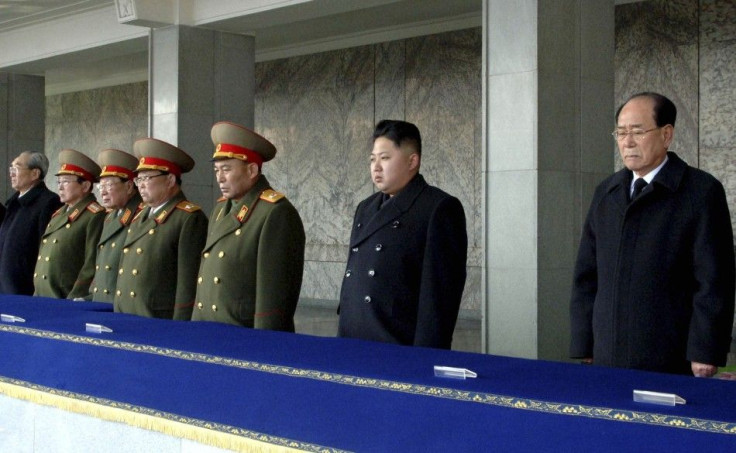North Korea: Huge Military, But Small Threat
ANALYSIS

The new leader of North Korea, Kim Jong-un (son of the recently departed Kim Jong-il) has also been named “supreme commander” of the country's armed forces, according to state-controlled media.
But what does he really lead?
Among the many bizarre aspects to life in North Korea is the huge size of the country's military.
Reflecting the isolated nation's extreme paranoia about the outside world, North Korea is virtually an armed camp.
With a population of about 24.5-million, the North Korean military boasts an active force of about 1.1-million and reserves amounting to some 8.2-million men and women, according to globalfirepower.com.
This means that at least one-third of the country's population is always on call in case a war breaks out or an invasion occurs. The number of military-ready personnel in North Korea isn't much smaller than the state's entire labor force of 12.2-million.
By comparison, the United States, with a population in excess of 313-million, has an active military force of only” 1.5-million and a reserve for of roughly another 1.5-million (the total is only 1 percent of the whole population).
If the U.S. had a military proportional in size to North Korea, there would be an astounding 100-million Americans in the armed services.
Of course, all of these soldiers, equipment, tanks, rifles, submarines, aircraft, etc., must be paid for. As such, in 2011 North Korea had an estimated defense budget of $5-billion, according to globalfirepower.com.
While it is impossible to determine the size of North Korea's economy, according to a 2004 Congressional Research Service report, 25 percent of its GDP was spent on military costs in 2002.
The CIA estimated that North Korea's GDP clocked in at $29 billion as of 2009, although other sources claim it is closer to $40-billion.
Nevertheless, despite the size of North Korea's military, there exist much skepticism about its actual power and fighting capabilities.
Carlton Meyer, a former US army soldier, believes that given its massive poverty, the threat posed by North Korea is greatly exaggerated.
A few years ago, Meyer wrote on g2mil.com: “North Korean soldiers suffer from malnutrition and rarely train due to a scarcity of fuel and ammo. Most North Korean soldiers could not attack because they are needed to defend the entire DMZ and coastal approaches... while entire divisions must remain throughout North Korea to fend off.. food riots, and probable coups.”
He also assured that South Korean forces could easily battle North Korea, even without American help.
“The modern South Korean army is backed by over 5,000,000 well-trained reservists who can be called to duty in hours,” Meyers wrote.
“South Korea has twice the population of the North, thirty times its economic power, and spends three times more on its military each year.”
Meyers added that South Korean military equipment is “first class” whereas most of North Korea's equipment is over 30 years old and much of it is “inoperable due to a lack of maintenance.”
Meyer is also unconcerned about North Korea's alleged nuclear weapons program.
“Even if North Korea employs a few crude nuclear weapons, using them would be suicidal since it would invite instant retaliation from the United States,” he declared. “North Korea's industrial production is almost zero, over two million people have starved in recent years, and millions of homeless nomads threaten internal revolution.”
Furthermore, Meyer doesn't think North Korea's benefactor China would help the country much in the unlikely event of war with South Korea.
“Chinese participation is extremely unlikely since China is busy with its free enterprise transformation while ensuring domestic tranquility,” he stated.
“In fact, stopping thousands of starving North Korean refugees from crossing their border has become a major problem, although the Chinese refuse to spend any of their billions of dollars in US trade surpluses to purchase food for their old ally. [North] Korea has no natural resources which interest China, and Chinese support would cause a major war with powerful South Korea, the United States, and probably Japan and Taiwan.”
© Copyright IBTimes 2024. All rights reserved.





















